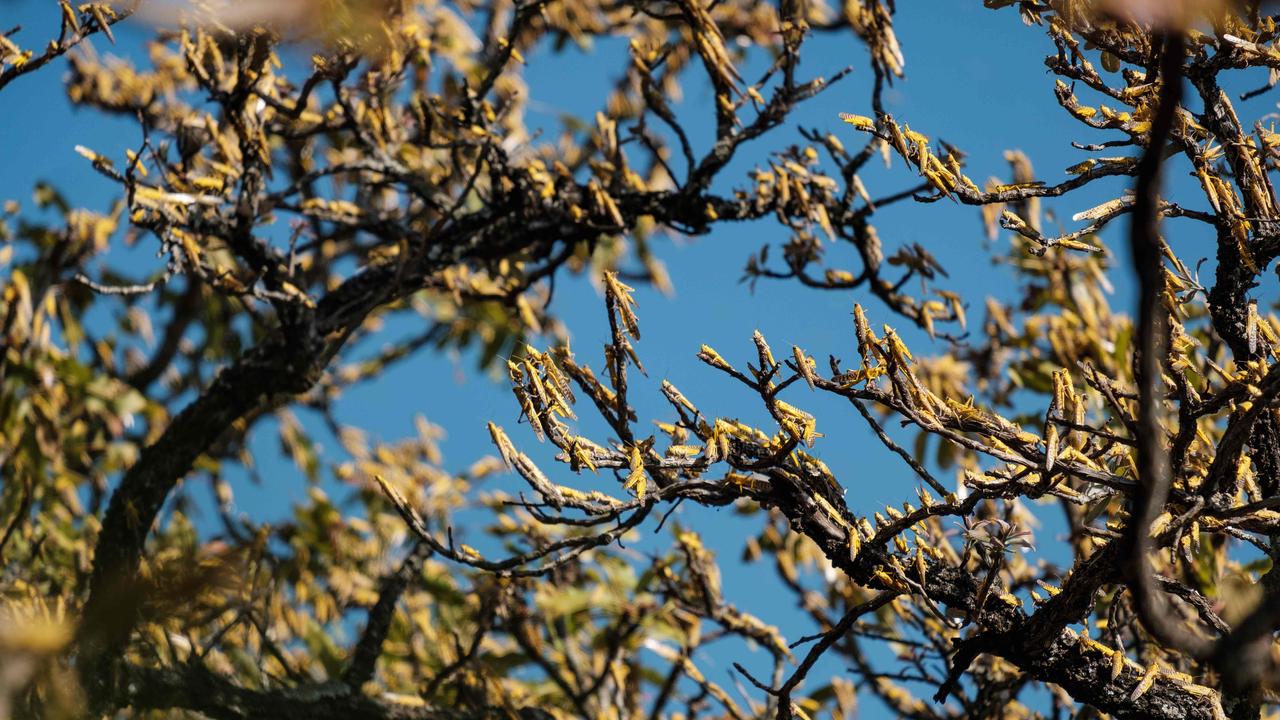Details: Insect infestation plaguing Darling Downs
A plague of pests has descended on the region this week, causing damage to rural properties, crops, and pasture.

Toowoomba
Don't miss out on the headlines from Toowoomba. Followed categories will be added to My News.
A plague of locusts has arrived on the Darling Downs, and local councils are urging residents to be mindful of the damage they can cause.
Goondiwindi Regional Council mayor Lawrence Springborg met with the State Government officials to discuss the growing concern about locusts.
“I can confirm that the Department of Agriculture and Fisheries will be undertaking an on-the-ground assessment of the infestation on rural properties from next Tuesday (February 2), and we urgently need rural landholders to report the issue prior to this,” he said.
“We need the DAF team to be visiting properties that have dense locust populations, to see first-hand the breadth of the problem, assess the numbers and the life cycle stage. From this data the State will be able to determine the scale and required management strategies and potential support available to local farms.
“Council is getting some requests and inquiries from landholders about hatching nymphs (immature locusts) on their rural properties, but anecdotally I’ve heard there may be significantly more that are unreported.”
Rural residents should report locust activity to Biosecurity Queensland via the Australian Plague Locust Commission on 1800 635 962 or online at: www.agriculture.gov.au/pests-diseases-weeds/locusts/landholders/reporting_locusts
Cr Springborg while council was aware of the damage certain chemicals can cause, it was “critical” to minimise and remove locust activity in the area.
He said the locusts posed a very real threat to properties and crops in the region.
“I will be lobbying the State Government to assist with the provision of education resources to help the community with their awareness of treatment options, as well as specific industry information,” he said.
“It’s important we are actively assessing and addressing this now, as the recent favourable weather conditions mean the outlook for January/February is for increasing locust activity, with a high likelihood of further widespread breeding.”
The council has commenced spraying on impacted council property and will continue to identify problem areas, including roadside corridors and stock routes.








